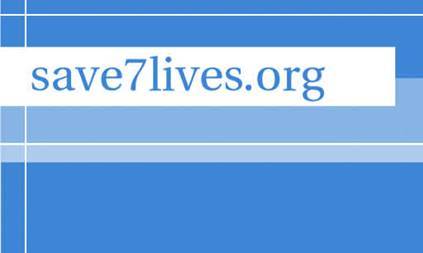SUSCO 8K:
Running With Tim
In Memory of Timothy P. Susco
Running to promote brain aneurysm and organ donation awareness
Susco 8K: Running With
Tim
susco8k @gmail
.com
About Organ Donation
Donation Process (Courtesy of the Washington Regional Transplant
Community)
The attending physician or hospital neurologist
declares death by brain criteria or by
cardio-pulmonary arrest in accordance with state
law and hospital policy. After death is declared,
the patient must remain on a ventilator before
organ donation can occur. A patient who is dead by
brain criteria, but is on a ventilator which allows
the heart to continue to pump, is a potential donor
for organs and tissues. A patient who has died due
to cardiac arrest and has no cardiac or respiratory
activity could still be an organ donor and may also
be a tissue donor.
According to Medicare Conditions of Participation, every hospital must notify its local organ procurement organization upon each death or when death is about to be declared. A WRTC clinical recovery coordinator receives information about the patient and evaluates his or her suitability as a donor. The patient's donation wishes are checked in the Registry of the patient's state of residence. If the patient registered to be an organ and tissue donor, the next of kin or health care proxy is approached and fully informed of the process. If the patient's wishes are unknown, the coordinator discusses all available donation options including recovery for transplantation, research, education or therapy.
If donation is to go forward, then the WRTC coordinator conducts a complete medical evaluation and social history of the potential donor. In the case of organ donation, UNOS (the United Network for Organ Sharing) is asked to run a waiting recipient list for every organ that can be placed. Once recipients are identified, their transplant surgeons are notified, and if they accept the offer the recipients go to their transplant centers to be readied for the transplants. This process can take 8-12 hours during which time the donor's organs are maintained medically by the WRTC coordinator and the hospital medical staff. While the donor is on the ventilator, adequate heart rate, blood pressure, respiration and urine output are critical to maintaining the donor's organs for transplant.
The operating room and the arrival and departure of the surgical transplant teams must be scheduled by the WRTC recovery coordinator. The procurement team consists of a surgeon(s), a nurse or other clinician, WRTC recovery coordinators and a recovery associate. When the surgical team arrives, organ recovery takes place in an operating room. A complete operating room staff and special surgical team is usually required for removal of heart, liver and pancreas; kidneys are removed by a local surgeon. Organs are immersed in protective solutions, packaged and are then sent to the waiting recipients.
Tissue recoveries occur after the organs are removed. A recovery team is called to the hospital and a room is prepped for the donation. All tissues are carefully removed, packed in sterile conditions, and transported to a tissue bank to be prepared for transplantation, research or therapy.
After organ and tissue recovery, the organs may be transplanted or sent to institutions for research, education or therapy. Then, in a respectful procedure, after recovery the donor's body is fully re-constructed so that there is no affect on funeral plans. Removal of the body to the funeral home takes place according to the guidelines of the hospital and the wishes of the family. These wishes are followed with respect and compassion by the entire recovery team.
WRTC provides all recovery follow-up, first by providing the donor's next of kin with the opportunity to have a Remembered for Life Memorial at the funeral. Letters about the outcome of the recovery are sent to the donor family, physician(s), nurses and other participating hospital staff at the donor hospital. All costs relating to the procurement are billed to WRTC. These include, but are not limited to, operating room charges, surgeon's fees and transportation. The recipient's transplant hospital then reimburses WRTC for procurement costs. In turn, that hospital is reimbursed by the recipient's insurance company or by Medicare. Sometimes donor families receive a bill by mistake. When this happens, they need only inform WRTC, which will correct the error. A WRTC Donor Family Advocate follows up with each donor family. This includes bereavement letters and literature, letters documenting the progress of recipients as well as offers of advice and support. The Advocates provide telephone support, grief seminars and annual remembrance services. If the family desires, follow up is provided for two years post donation.
Â
Copyright 2018 Susco 8K: Running With Tim. All rights reserved.
Susco 8K: Running With
Tim
susco8k @gmail
.com

